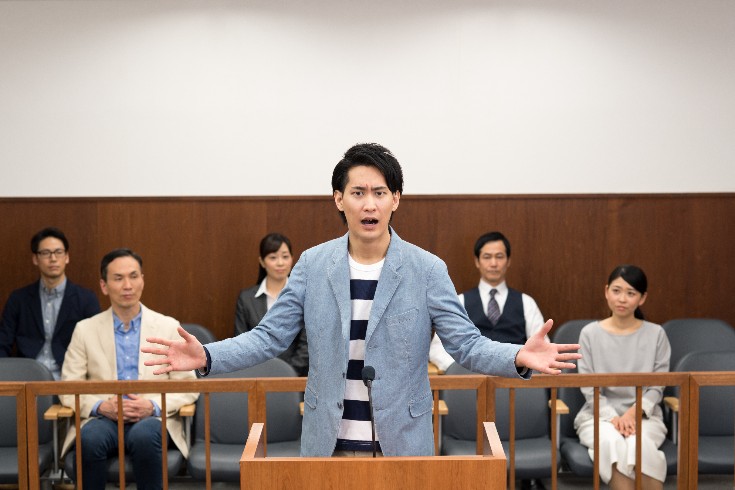Understanding the Precautions for Using Subsidy Application Agents and Necessary Contract Terms

In managing a company, you may consider applying for various subsidies.
Subsidies are funds partially granted by the national or local governments to support the initiatives of businesses that align with their policy objectives.
Since subsidies are generally non-repayable, they can be a significant help for a company’s cash flow.
However, not everyone can receive a subsidy just by applying for it. The subsidy application has complex requirements, and it is necessary to clearly describe the content of the business applying for the subsidy based on these requirements in the application documents.
Given the substantial volume of subsidy application documents, preparing the application while carrying out daily business operations can be a considerable burden for a company. Therefore, it is relatively common to outsource the subsidy application to external consultants.
With this in mind, we will explain the points to be careful about in the consulting contract when outsourcing the subsidy application work to an external company.
Procedure for Applying for Subsidies
As explained at the beginning, subsidies are a system where a portion of the necessary expenses are granted to support the initiatives of businesses in line with the policy objectives of the national and local governments.
Primarily, the Ministry of Economy, Trade and Industry (Japanese Ministry of Economy, Trade and Industry) handles a large number of subsidies.
When applying for a subsidy, it is necessary to obtain the latest public recruitment guidelines and designated application forms, and submit the documents to the secretariat in time for the subsidy application deadline.
Subsequently, the secretariat reviews the subsidy application and decides whether to adopt it or not.
Then, the implementation of the business that is the target of the subsidy must be carried out after the adoption decision.
Also, subsidies are not immediately paid to the company once they are adopted.
Companies that have been selected for a subsidy must first spend the full amount of expenses, and can only receive the subsidy after reporting the implementation details of the project, etc.
Subsidies usually have a certain budget limit, so not all applications are adopted.
For example, the popular “Manufacturing Subsidy” (Japanese Manufacturing Subsidy) among businesses is said to have an adoption rate of around 50%.
For this reason, many companies ask professional consultants to apply for subsidies in order to pass the review as surely as possible.
In addition, there is a “grant” (Japanese grant) which is similar to a subsidy. Grants, like subsidies, are provided by the national and local governments, etc., and no repayment is required. The difference between subsidies and grants is that if certain requirements are met, grants can basically be received. Also, grants are mainly benefits related to employment under the jurisdiction of the Ministry of Health, Labor and Welfare (Japanese Ministry of Health, Labor and Welfare).
Who Should You Entrust With Your Subsidy Application?

When outsourcing your subsidy application, who should you entrust it to? To cut to the chase, there is no special qualification required to handle subsidy applications. Therefore, there are numerous agents who claim to offer subsidy application consulting services.
However, it seems that in practice, many subsidy applications are handled by consultants who hold the qualification of Small and Medium Enterprise Management Consultant.
In addition, there are many cases where tax accountants and certified public accountants also provide subsidy application consulting services.
It is said that there are key points in how to write a subsidy application form. Therefore, when outsourcing your subsidy application, it would be advisable to consult with a consultant who has a wealth of experience in subsidy applications.
Furthermore, the remuneration for subsidy applications is generally divided into two stages: a retainer fee and a success fee.
In this case, the retainer fee is usually around 100,000 to 150,000 yen, and the success fee is about 10% of the adopted amount. Therefore, if the remuneration amount is significantly higher than this, you may want to carefully consider whether or not to entrust them with your application.
Subsidy Application Consulting Contract
When outsourcing subsidy applications, a contract is created and concluded with a consultant. In this article, we will explain in detail the key points to check in a consulting contract.
In the contract template shown below, “Party A” refers to the company that is outsourcing the subsidy application, and “Party B” refers to the consultant who will handle the subsidy application.
When actually creating a contract, please note that the clause examples given below should not be used as templates as is, but should be adjusted according to the actual circumstances of the parties involved.
For more detailed explanations on the contents of a general outsourcing contract, please refer to the following article.
https://monolith.law/corporate/regulation-of-outsourcing-contract[ja]
Clause on the Content of the Outsourced Work
Article X (Scope of Work)
Party A entrusts the following work (hereinafter referred to as “the Work”) to Party B, and Party B accepts this.
(1) Preparation of application forms and other necessary documents for the subsidy for the fiscal year of Reiwa X (Gregorian calendar year)
(2) Ancillary work arising from the performance of the work specified in the preceding paragraph
The central clause in a consulting contract is the one related to the content of the consulting work to be outsourced. Here, it is important to clearly state the content and scope of the work. Specifically, it is crucial to explicitly state which subsidy application is being outsourced.
Subsidies are usually identified by the fiscal year in which they are solicited and the name of the subsidy. Therefore, it is important to check for any errors in the name of the subsidy, etc., by comparing it with the public solicitation guidelines of the national or local government soliciting the subsidy.
Clause on Remuneration
Article X (Remuneration, etc.)
The remuneration for the Work shall be as follows:
(1) Initial Fee
Party A shall pay Party B an initial fee of XX yen (including consumption tax).
(2) Success Fee
If the subsidy applied for through the Work is adopted, Party A shall pay Party B XX% (including consumption tax) of the adopted amount.
Alongside the content of the outsourced work, another important clause is the one related to the remuneration for the work. As mentioned earlier, the remuneration for subsidy applications typically consists of an initial fee and a success fee.
Therefore, as a company outsourcing a subsidy application, it is necessary to check whether the calculation method and amount of the remuneration are unambiguously defined in the consulting contract.
Also, if there are any fees or expenses that the company is required to bear in addition to the initial fee and success fee, it is important to thoroughly check the content of these expenses in advance to avoid any trouble.
Recently, due to the increase in consultants handling subsidy applications, some consultants seem to be adopting a completely success-based fee system with no initial fee.
Clause on Re-Entrustment
Article X (Re-Entrustment)
(1) If Party B entrusts the Work to a third party, it shall obtain prior written consent from Party A.
(2) If Party B re-entrusts the Work to a third party based on the preceding paragraph, Party B must impose obligations on the third party that are equal to or greater than the obligations it bears under this contract.
Due to the fact that subsidy applications have deadlines set every few months, consultants who handle application agency tend to have a concentration of work at certain times.
For this reason, they may re-entrust the creation of subsidy application forms to external collaborators.
Even in such cases, it is necessary to keep the situation in a state where the side making the request can understand whether it has been re-entrusted or not. Therefore, in the above clause example, written consent is required as a condition in paragraph 1.
If it is known from the beginning that re-entrustment will occur, it may be considered to state in paragraph 1 of the clause example that “Party B may re-entrust the Work to XX, and Party A accepts this”.
As the entrusting party, it is advisable to disclose as much information as possible about the re-entrusted party, such as the name of the company.
Furthermore, documents related to subsidy applications contain confidential business information for the company. Therefore, even when re-entrusting to an external company, it is necessary to check whether they are at least obliged to maintain confidentiality.
This is the purpose of paragraph 2 in the above clause example.
Clause on Contract Termination
Article X (Termination of Contract)
1. Either Party A or Party B may terminate this contract by notifying the other party in writing if the other party falls under any of the following items:
(1) When there is a violation of any of the clauses of this contract
(2) When the credit status deteriorates
(3) When there is a reason that makes it impossible to achieve the purpose of this contract
2. If Party A refuses to receive the subsidy after being adopted, or if Party A cannot receive the subsidy because it did not implement the project, the contract cannot be terminated.
Paragraph 1 of the clause example is a general clause on contract termination. What is particularly prone to problems in the outsourcing of subsidy application work is paragraph 2 of the clause example. The success fee for subsidy application work usually arises when the applied subsidy is adopted.
However, the actual receipt of the subsidy by the client company can only occur after the adopted project has been implemented. According to paragraph 2 of the clause example, even if the client cannot actually receive the subsidy due to the client’s circumstances after the subsidy has been adopted, the success fee will still be incurred.
Since it is not the consultant’s responsibility if the client does not take the necessary steps to receive the subsidy after the subsidy has been adopted, it is inevitable that such a clause will be included.
General Clauses

In addition to the clause examples mentioned above, there are general clauses that are typically stipulated in contracts.
Examples of general clauses include those related to liability for damages, jurisdiction in case of disputes with the other party, and obligations to maintain confidentiality.
Among these, the clause on confidentiality obligations is extremely important in subsidy applications, as highly confidential information such as the company’s business plan and financial information is provided to the consultant. This is because there is a risk that the company may suffer damage if the information is leaked to competitors.
Confidentiality obligations may be stipulated in the consulting contract, but considering their importance, a separate confidentiality agreement, also known as an NDA, may be created.
For more details on Non-Disclosure Agreements (NDAs), please refer to the following article.
https://monolith.law/corporate/checkpoints-nondisclosure-agreement[ja]
Summary
Effectively utilizing external consultants for grant applications can bring significant benefits to your company.
When outsourcing grant application tasks, it is essential to enter into a contract.
Particular attention should be paid to the contract details regarding the scope of work and remuneration, as these areas are prone to disputes. If you have any concerns about the contract, you can consult with a lawyer who is knowledgeable in corporate law and seek advice.
Our Firm’s Approach
As mentioned above, the creation of contracts is essential for the safe utilization of subsidy agency businesses.
Monolith Law Office is a legal office with high expertise in both IT, particularly the internet, and law. Our firm handles the creation and review of contracts for various cases, ranging from companies listed on the Tokyo Stock Exchange Prime Market to venture startups.
If you have any concerns about contracts, please refer to the article below.





















